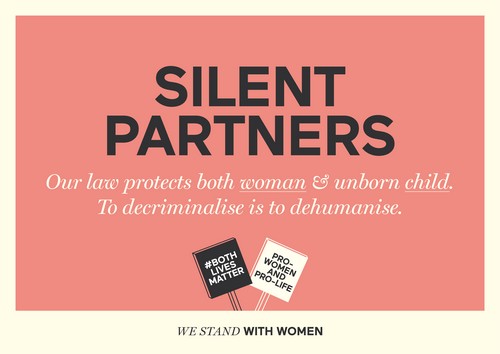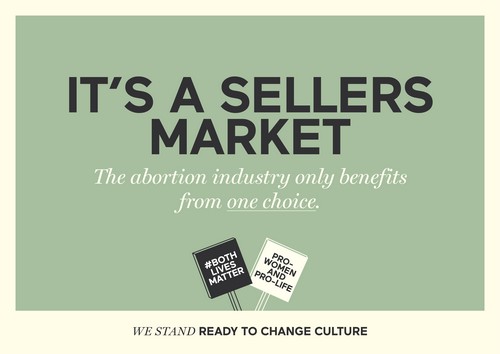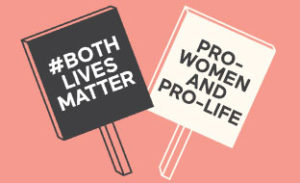The law on abortion in Northern Ireland has been changed beyond recognition. In October 2019 abortion was decriminalised under section 9 of the Northern Ireland (Executive Formation etc) Act 2019 The new law and regulatory framework on abortion was laid in March 2020. Sadly the result is that we now have some of the weakest protections for women and unborn children anywhere in Europe.
The repeal of sections 58 & 59 of the Offenses against the Person Act removed every explicit legal protection from all unborn children up until the point at which they are capable of being born alive (around 22 weeks gestation). And for the first time, children diagnosed in the womb with a disability can be aborted at any stage of pregnancy up until birth. In addition an amendment to section 25 of the Criminal Justice Act 1945, removes legal protection for all children up to birth, in cases where the mother self induces her own abortion.
These changes to the law in NI deny the very humanity of the unborn child.
The campaign for total ‘decriminalisation’ of abortion has been led and supported by Amnesty International, abortion providers such as the British Pregnancy Advisory Service, and medical groups including the Royal College of Obstetricians and Gynaecologists, and the Royal College of Midwives. It’s easy to have sympathy with the idea that vulnerable women should not be ‘criminalised’ and slogans like ‘She is not a criminal’ and ‘Trust Women’ are incredibly emotive.
Some of the drive for decriminalisation comes from a place of (misplaced) compassion. Nobody wants to see women in court or prison because they have had an abortion, at this point society has failed them. But we will never agree that the answer is decriminalisation, or abortion. Compassion does not equal abortion.
From some quarters though, this push for decriminalisation is the logical result of and is achieved by the dehumanisation of the unborn child. It is part of an ideological attempt to re-categorise abortion solely as a medical procedure with no ethical difference from the removal of an appendix.
So in this moment it is important to consider the role and purpose of criminal law in society and why abortion should be designated a criminal matter rather than a civil one.


- The State acts on behalf of the potentially vulnerable. Every abortion ends an unborn human life and many women are harmed by abortion. The law has a duty to protect women from harm, whether from themselves and/or from unscrupulous abortion providers, while also recognising the public value in the life of the child. This concern for both lives was seen in (the now repealed sections 58&59 of) the Offences Against the Person Act 1861. And in section 25 of the Criminal Justice Act (Northern Ireland) 1945, which created the offense of child destruction. These laws gave a public value to the life of mother and child. The law sought to protect women from unsafe and often dangerous backstreet abortions within a culture of extra-marital pregnancy shame. For unborn children who cannot safeguard themselves the criminal law existed to recognise and protect them.
- The criminal law governs very carefully the right to encroach upon bodily autonomy in specific areas. When it comes to the law’s encroachment upon areas of bodily integrity the law generally and rightfully takes a very hands off approach. It recognises that in most instances individuals have a right to decide what happens to their own body. In certain circumstances however, the law steps in to stop an individual seriously harming themselves or others. We contend that a criminal law around abortion is a very important exception to a very important general rule.
- Abortion has been decriminalised in NI but remains illegal in the rest of the UK when performed outside circumstances set down by the law.
- The criminal law always governs actions which result in the ending of human life. It is the remit of the criminal law to put strong limits around when human life is intentionally ended or human dignity degraded.
- Civil law deals with things like parking fines and planning regulations, this is not the jurisdiction to deal with the unsanctioned ending of human life. When it comes to governing the ending of human life or potential degradation of human dignity, the correct jurisdiction is the criminal law.
- Human life has a public value. The role of the criminal law in the area of abortion has always been fundamental to the public interest. The civil law deals with private rights and remedies by governing disputes between individuals, groups, and organizations for example, contract and property disputes. The criminal law concerns a set of behaviours which are considered to be against the interests of society as a whole. Obvious examples of this include theft or child abuse. These are considered public wrongs and not the preserve of private value judgements. For many years domestic violence, and until as recently as 1994 marital rape, were considered issues of private conduct within a relationship. Abortion is undoubtedly a deeply private issue but it is undeniably also of public interest.
- Criminal law communicates the message that human life is not private property to be disposed of. In order to move abortion from the criminal law to the civil law it would mean withdrawing this public value we place in the life of the unborn child. If this is the line we pursue as a community, then we collectively place no inherent value in the next generation. At a fundamental level, human worth becomes an entirely privatised matter. The criminal law has an important role in communicating cultural messages and in rejecting the idea that human life is private property to be disposed of at will.
- Worth does not depend on want. We contend that human worth does not depend on how much that human being is wanted. This is the way the market works and human beings should be above the market. We believe that even unwanted unborn children are unworthy of destruction. Unborn children who are wanted and chosen are protected in NI law under the offense of child destruction. There is however no legal protection for that same child if he or she is unwanted and (un)chosen by the woman who then self induces her own abortion. When there is no criminal law on abortion, then the public value of human life will simply depend on whether it is wanted or unwanted.
- Under other legislation the criminal law has already declared the unborn a human life worth protecting. For example, in the case of the murder of a pregnant woman the prosecuted is trialed for a double homicide. In Northern Ireland, the lives of twin unborn children were acknowledged in criminal proceedings following a bombing. Also in Northern Ireland the unborn child has been acknowledged as a legal person for the purposes of a post-mortem following a still birth. In some circumstances a child may even sue their parents for injury sustained whilst in utero.
- Criminal laws are absolutely necessary for liberty. Criminal laws are absolutely necessary for liberty. Their function is to provide deterrence and protection from and redress for harm done to individuals, where that harm threatens the very structure of society and all persons therein.
- Slippery slope. Pro-abortion activists continue to campaign for total or full decriminalisation. Their argument for full autonomy demands that a woman should be able to access abortion (within the NHS and not merely have protection from criminal prosecution upon self-inducing her own abortion) at any stage of pregnancy, right up to birth, for any reason and without any criminal law boundaries. This would include abortion on the grounds of the baby being the ‘wrong’ sex or completely healthy but just unwanted.
- Criminalisation and compassion. A criminal law on abortion does not criminalise ‘women’ but very specific ‘actions’ which are taken by anyone outside of the legal provision for abortion. Declaring an act to be ‘criminal’ does not mean that compassion cannot be shown. The law is a blunt tool yes, but that does not mean society cannot show discretion and mercy.
- Perspective. Distressing details of individual cases that are presented by the media were and are used to promote a change in the law to allow abortion in any circumstance. Our response must always be one of compassion and support for every woman in these circumstances, including those who have made this decision. But our compassion must not lead us to endorse the decriminalisation of abortion and the upending of a law which protects the value of human life for everyone.
- Discretion and mitigation. In almost any area of criminal law one could point to situations where the ‘accused’ was found to be in incredibly vulnerable and difficult circumstances. The law allows for a degree of discretion and mitigation. The criminal law system has a series of inbuilt checks and balances. For instance take the controversial case where a young women received a three month suspended sentence for illegally aborting her baby which was found by her housemates in their bin. The PSNI had discretion to decide whether there was enough evidence upon investigation to send a file to the PPS. The PPS have two tests to complete before they proceed with a prosecution. Is there enough evidence and is there a public interest? The Judge then has considerable discretion in sentencing. In this case the young women had subsequently become a mother to a born child. She was discharged with a suspended three month sentence. We would contend that an element of justice was shown in that the illegally ended life of her unborn child was acknowledged by the law. A degree of mercy was shown in the sentence, she was not deprived of her freedom or her child which she had subsequently. A message was also sent to society that the use of illegal pills and abortions risks harm to women and their unborn children. There was no ‘good’ outcome to this tragic case but the law was able to both acknowledge that both lives were worthy of protection. Decriminalising abortion would not have solved the problem. If a young mother feels her only choice is to steal food to feed her children she has been failed by society. The answer is not to decriminalise theft though. It is to address the underlying issues like poverty, isolation and social deprivation which have led to this situation. The answer is not to decriminalise abortion – it is to deal with the issues which make abortion the answer.
- The unborn hawk. The Wildlife and Countryside Act 1981 protects many species of birds eggs from destruction using the criminal law. Rightly so. But there is now a sad irony when society would render an unborn hawk more worthy of protection by the criminal law than the human unborn child.
We believe we can do better than abortion; better than decriminalisation.
We will continue to advocate for the restoration of legal protections for women and unborn children; protections removed with the decriminalisation of abortion in NI.
We will continue to stand with women and unborn children calling for world-leading pregnancy care and world-leading support services enabling and inspiring women to choose life.

